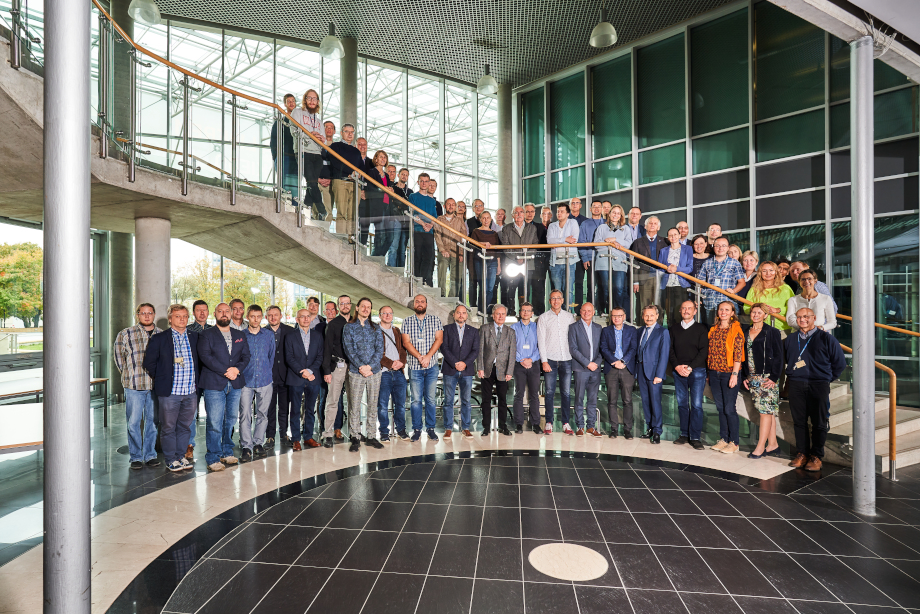The Institute of Computer Science is part of the Faculty of Computer Science and Telecommunications at Poznan University of Technology, which holds an A category rating for research excellence. The institute is one of Poland’s leading centers in artificial intelligence, operations research, multicriteria decision support, combinatorial optimization, data processing, software engineering, bioinformatics, and computational biology.
The Institute of Computer Science originated from the Institute of Automatic Control, established in 1970 within the Faculty of Electrical Engineering. In 1988, it was renamed the Institute of Computer Science, Automation, and Robotics, and in 1990, it evolved into its current form as an independent Institute of Computer Science. Between 2001 and 2010, the institute was part of the Faculty of Computer Science and Management. From 2010 to 2019, it was integrated into the Faculty of Computer Science, and since 2020, it has been part of the Faculty of Computer Science and Telecommunications.
The institute consists of seven departments:
- Department of Operations Research and Artificial Intelligence,
- Department of Intelligent Decision Support Systems,
- Department of Information Systems,
- Department of Algorithm Theory and Programming Systems,
- Department of Software Engineering,
- Department of Data Processing Technologies,
- Department of Machine Learning.
The Institute of Computer Science conducts research and collaborates with many European universities, earning numerous awards and distinctions in international (e.g., CASP15) and national competitions.
Currently, the institute employs approximately 180 staff members, including:
- 14 full professors,
- 32 associate professors and habilitated doctors,
- 68 assistant professors, senior lecturers, and research assistants with a PhD, all specializing in Computer Science.
Among its staff, the institute boasts:
- Three members of the Polish Academy of Sciences (PAN) (out of only five total PAN members representing computer science),
- Seven members of the PAN Computer Science Committee (out of 35 in total),
- Three honorary doctorate recipients from various Polish and international universities,
- Several experienced industry professionals.
In 2024, seven distinguished researchers from the Institute of Computer Science were included in Stanford University's global ranking of the most influential scientists, recognizing the top 2% worldwide based on career-long impact.
The institute has also received two prestigious Foundation for Polish Science Awards, known as the "Polish Nobel Prize", among only three ever awarded in computer science:
- In 2005, Prof. Roman Słowiński was honored for developing decision-support methodologies based on incomplete data, with applications such as a diagnostic system for children with abdominal pain and a health monitoring system for Siberian forests.
- In 2000, Prof. Jan Węglarz was awarded for his work on discrete-continuous scheduling methods for IT-based management and production control systems.
The Institute of Computer Science participates in advanced research and development projects for both national and international institutions, including:
- ENKORE (HORIZON-JU-IHI-2023-04-two-stage) – Developing eco-designed, circular, safe, and sustainable packaging solutions for healthcare environments.
- Space Data Brokering Optimization System (CORE 2022).
- Learning with Multiple Representations (HORIZON-MSCA-2021-DN-01).
- SNS Collaborative Operations and Output Optimization (HORIZON-JU-SNS-2024-STREAM-CSA-01).
The institute has a long-term collaboration with the Institute of Bioorganic Chemistry of the Polish Academy of Sciences, which led to the establishment of the European Center for Bioinformatics and Genomics (ECBiG). Notable projects include:
- ECBiG - Genomic Map of Poland, which collected genomic data from over 5,000 Polish residents, creating a comprehensive genomic profile of the population and analyzing correlations between genomic data and phenotypic traits.
- ECBiG - MOSAIC, a comprehensive biomedical and clinical data platform, integrating and analyzing multidimensional datasets using artificial intelligence algorithms.
The institute is known for practical, real-world applications of its research, including the development and deployment of "Eskulap", a hospital information system used in over 100 hospitals. The system provides comprehensive hospital management, including patient flow, pharmacy and medical supply management, and various hospital registries.
The institute has a modern laboratory infrastructure, supporting both research and education. It operates 30 specialized laboratories equipped with approximately 500 computers connected via the institute's network.
The institute offers undergraduate and graduate programs in:
- Bioinformatics (full-time),
- Computer Science (full-time and part-time),
- Artificial Intelligence (full-time).
The Computer Science program at the Faculty of Computer Science and Telecommunications has received a distinguished rating from the State Accreditation Committee three times (2004, 2011, and 2019). In 2019, all quality criteria received the highest possible rating.
Additionally, in 2016, the undergraduate Computer Science program was awarded the "Studies with a Future" Certificate by the Foundation for the Development of Education and Higher Education.
The program was ranked 1st in Poland:
- In 2003 by Polityka magazine,
- In 2008 and 2009 by the PAN Computer Science Committee.
Student Competitions & Achievements
Students of the Institute of Computer Science have achieved outstanding results in national and international competitions, including:
- IEEE Computer Society’s International Computer System Design Contest (CSIDS):
- 1st place in 2001 and 2004,
- 2nd place in 2002 and 2005,
- 3rd place in 2000.
- ACM International Collegiate Programming Contest (ICPC) (Central European region, University of Freiburg, Germany, 2000):
- 3rd place – P. Kubiaczyk, B. Nowowierski, P. Zieliński,
- 6th place – M. Prinke, M. Rein, L. Olek.
- Microsoft Imagine Cup (2005, Japan):
- Two fourth-year students from Poznań University of Technology won the global finals, gaining significant media recognition.
The Institute of Computer Science continues to excel in both research and education, establishing itself as a leading institution in computer science, artificial intelligence, and advanced computational technologies.
